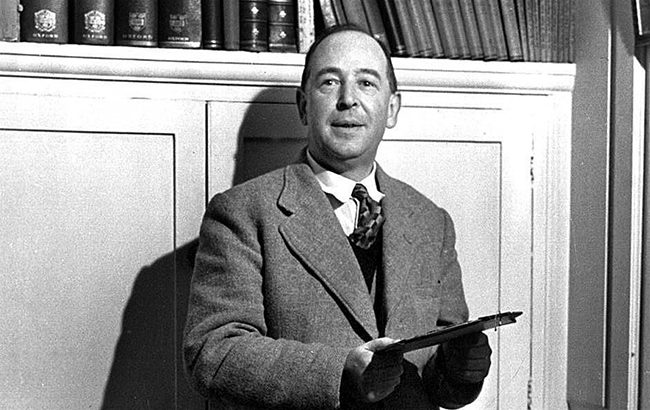Mere Christianity
by C.S. Lewis (William Collins, £12.99/€18.19)
This is a famous book of apologetics which is splendid to see back again in the shops. Mere Christianity is a collection of three books: Broadcast Talks (1942), Christian Behaviour (1943) and Beyond Personality (1944). These in turn were printed versions of a series of talks on Christian Faith delivered on the BBC in the mid-1940s by C.S. Lewis (1896-1963).
Lewis was a fellow and tutor in English Literature at Oxford University and later a professor at Cambridge University. Best-known for his novels and science fiction, he was one of the most influential apologists for Christianity in his life-time. But these essays and the reflections they contain were the result of a period of all-out war and national solidarity, to which the BBC was giving voice.
This reissue is well worth reading in our present time of crisis. Though Lewis’s name is well known to countless millions for the Narnia novels, his writings as an apologist are, I think, now less well known on the same scale to a younger generation of readers.
Carnage
Lewis survived the carnage in the trenches in World War I. In 1940 when the bombing of Britain began, he served as an air-raid warden and gave lectures to the airmen of the Royal Air Force, the heroes of the legendary Battle of Britain.
In his talks on the BBC, his highlighting the decency, fairness and sheer goodness promoted by Christianity reminded the air-men, the servicemen and women at the front, and his fellow-citizens at the home front, of the values they were defending.
Lewis’ treatment of Christianity is comprehensive. Beginning with the Christian’s clear distinction between right and wrong, good and evil, as based on the dictates of the Natural Law, he discusses the traditional Christian doctrines and moral imperatives. He treats sin and forgiveness in the context of the great virtues of faith, hope and charity.
Next he ruminates on the mystery of the Blessed Trinity. All aspects of human behaviour come under his gaze. There are sections on social morality, morality and psychoanalysis, sexual morality and Christian marriage.
I do not think it my place to take a firm line about pains, dangers and expenses from which I am protected…”
Claiming no greater authority than the experience of a committed layman of the Church of England, Lewis sets out to freshen-up the message of Christianity and he succeeds to a large extent.
He exhibits eminent common-sense in so doing. On birth-control he writes: “I have said nothing about birth-control. I am not a woman nor even a married man, nor am I a priest. I do not think it my place to take a firm line about pains, dangers and expenses from which I am protected; and having no pastoral office which obliges me to do so.”
Divorce
On divorce he is pragmatic. While firmly defending the unity and indissolubility of Christian marriage, he writes: ‘There ought to be two distinct kinds of marriage: one governed by the State with rules enforced on all citizens, the other governed by the Church with rules enforced by her on her own members’.
The tone of Lewis’s treatment of his subject is influenced by his conviction that love, mercy and forgiveness are at the very heart of the Christian message.
All of us now – worldwide – like the war-weary British in the 1940s are living in a period of foreboding and uncertainty”
But he does remind his listeners and readers that “from those to whom much is given much is expected”. For him ‘mere Christianity’ is not a philosophy or a theology that may be considered, argued and put away in a book on a shelf. It is a way of life. He stresses that in fact it is a radical way of life.
All of us now – worldwide – like the war-weary British in the 1940s are living in a period of foreboding and uncertainty. Man, the pinnacle of evolution, is on the run before a tiny virus. It is a time for some serious reading and reflection.
What better book is there to read than C.S. Lewis’s classic on Christian belief to remind us of the truly important things in life?


 C.S. Lewis
C.S. Lewis 